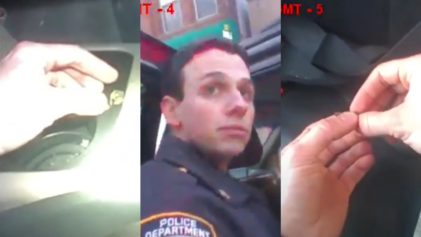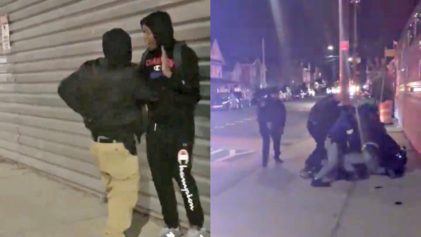After years of controversy and debate over the stop-and-frisk program practiced by the New York Police Department, black and Hispanic men in the city will finally have their day in court, as the trial begins today in a lawsuit that challenges the very premise of the controversial practice.
The trial in Federal District Court in Manhattan will determine the legality of the stop-and-frisk program and have an enormous impact on policing procedures used by the NYPD in the future. It is also likely to effect the way the NYPD relates to black and Latino men in the city.
Though testimony from the plaintiffs will come from about a dozen black and Latino men (and one Latino woman) about their experiences with stop-and-frisk, the plaintiffs in the class action lawsuit say they represent “hundreds of thousands if not millions of people” who experienced “suspicionless and race-based stops.”
“At stake are the constitutional rights of hundreds of thousands of New Yorkers who have been illegally stopped,” said Vince Warren, executive director of the Center for Constitutional Rights, the organization that filed the suit. “These are people who are living under a state of siege in their own neighborhoods.”
According to the New York Civil Liberties Union, police made 97,296 street stops in 2002, New York Mayor Michael Bloomberg’s first year in office, growing to 685,724 stops in 2011 and 533,042 stops last year. Of the stops last year, 89 percent resulted in no arrest or ticket.
Plaintiffs’ lawyers say their case will take about 30 days to present, while the city expects to take an additional five days for its defense, meaning the trial will likely last well into May. The trial will feature the testimony of current and former police officials, as well as secret station house audio recordings, which the lawyers say were recorded by police whistle-blowers to demonstrate the pressure that officers are under to make stops.
The case is called Floyd vs. New York City and is built around the lead plaintiff, David Floyd, a medical student in the Bronx who was stopped twice—in April 2007, as he walked on the sidewalk, and the following year while standing outside his home, helping a neighbor try to get back inside an apartment after becoming locked out. According to the suit, the police approached Floyd and the neighbor and detained them on suspicion of burglary, ordering Floyd to stand against a wall and searching his pockets.
In a possible bad omen for the city, the case will be decided by Judge Shira A Scheindlin, who is currently hearing two related stop-and-frisk lawsuits and who already issued a preliminary ruling in a case in the Bronx that many of the stops at issue were unconstitutional.
The Floyd trial is the ultimate test of whether the Police Department has increasingly ignored constitutional limits on its authority to detain people when they investigate behavior that they deem suspicious. The question at hand is whether police must have “reasonable suspicion” to stop someone and not a vague hunch.
The Police Department has denied using a quota system, saying it has a written policy forbidding racial profiling.
“Minorities are overwhelmingly the victims of violent crime in New York City, and the neighborhoods in which they live demand and deserve the Police Department’s attention,” the city’s executive assistant corporation counsel, Celeste Koeleveld, said in a statement about the coming trial. “Precinct by precinct, the rates at which minorities are stopped are consistent with the rates at which minorities are identified as crime suspects.”


